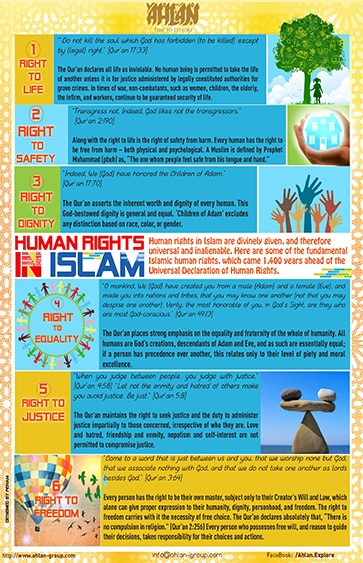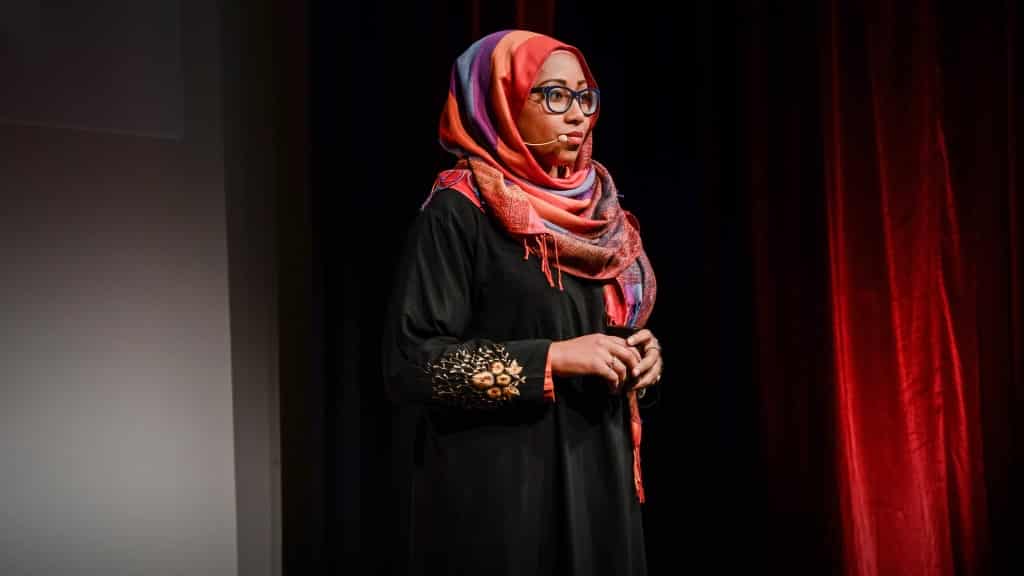Islam, from its very inception, completely changed Arab women’s lives by changing the way they were seen and treated in society. Islamic teachings improved Arab women’s status; they went from being practically non-existent in some pre-Islamic societies to having dignity, respect, and clear rights.
People in the west don’t always get this, and their ideas about Muslim women can be way too simple. Often, the narrative surrounding women in Islam is clouded by misconceptions and generalizations. Let’s find out the historical reality of how the rise of Islam impacted the lives of Arab women.
And let’s begin with what was going on with Arab women before Islam, because looking at how things were for Arab women before and after Islam arose gives us a really good idea of how much the rise of Islam changed things for Arab women.
What Was Going On With Arab Women Before Islam?
Before the message of Islam reached the Arabian Peninsula, the status of Arab women was dismal. Life for Arab women before Islam was really tough and unfair; they lived in a tribal society where customs and traditions often hurt women. Arab women before Islam were often treated as property, denied inheritance rights, and subjected to practices like female infanticide.
1. Female infanticide was practiced against Arab women in the pre-Islamic era
Perhaps the most chilling practice of this era was female infanticide. Driven by a distorted sense of honor and fear of perceived economic burden, families would bury their newborn daughters alive. This brutal act was a grim testament to the low value placed on female life in the Arabian Peninsula.
The Quran condemns this barbaric custom, stating:
“And when the girl [who was] buried alive is asked, for what sin she was killed.”
(Quran 81:8-9).
The Quran also describes the despair that many men felt when they received the news of the birth of a daughter. In verse 58 of Surat An-Nahl, it reads,
“And when one of them is informed of [the birth of] a female, his face becomes dark, and he suppresses grief.”
(Quran 16:58).
So, the Arab girls before Islam were not valued at all, which is why they were buried alive.
2. Arab women before Islam were objects of inheritance
Arab women before Islam were often treated as property, inherited alongside material possessions upon the death of their male relatives. They had no agency in choosing their husbands and could be forced into marriages against their will.
3. The social standing and rights of Arab women were limited before the rise of Islam
Arab women possessed minimal legal rights and were largely excluded from public life. Their voices were silenced, and their contributions to society were largely ignored.
This pre-Islamic era, known as the “Jahiliyyah” (the Age of Ignorance), presented a stark contrast to the dignity and rights Islam would soon bestow upon women.
What Happened to Arab Women When Islam Arose?
The arrival of Islam, with its divinely revealed teachings through the Prophet Muhammad (PBUH), marked a radical departure from the oppressive norms of Jahiliyyah that hurt women. Islam advocated the inherent dignity and worth of every human being, regardless of gender.
The Islamic religion asserted the equal spiritual and human value of men and women. Unlike the prevailing beliefs of the time, the Quran declared that both genders were created from a single soul, emphasizing their shared origin and inherent worth.
“O mankind, fear your Lord, who created you from one soul and created from it its mate and dispersed from both of them many men and women.”
Men and women are fundamentally equal, both in their creation and in their accountability to Allah. Islam made it clear that piety and righteousness, not gender, were the criteria for divine favor.
“Indeed, the most noble of you in the sight of Allah is the most righteous of you.”
This foundational principle of equality paved the way for a series of revolutionary reforms that fundamentally altered the lives of Arab women:
Key Changes for Arabic Women When Islam Arose
Islam granted women a range of rights that were unprecedented in that era and, in some cases, even ahead of many contemporary societies. These rights include:
1. From female infanticide to the right to life
As we mentioned, the Quran condemned this heinous act, posing a powerful rhetorical question in Surah At-Takwir (81:8-9): “And when the girl [who was] buried alive is asked for what sin she was killed.” This verse not only prohibited infanticide but also established the sanctity of female life from its very beginning.
The Prophet Muhammad (PBUH) further stressed the gravity of this crime, placing it among the greatest sins. It was narrated that ‘Abdullah said:
“I said: ‘O Messenger of Allah, which sin is the most grievous?’ He said: ‘Setting up a rival to Allah while it is He that has created you.’ I said: ‘Then what?’ He said: ‘Killing your child for fear that he may eat with you.”
2. Islam made sure women were treated kindly and with respect
Prophet Muhammad (PBUH) repeatedly emphasized the importance of treating women with kindness, respect, and compassion. He said:
“The best of you are those who are best to their wives.”
(Tirmidhi).
Also, In his Farewell Sermon, Prophet Muhammad specifically instructed:
“Treat women well and be kind to them for they are your partners and committed helpers.”
3. Islam granted women financial independence
Islam granted women financial independence and the right to own and manage property, not a common concept in that time. Unlike many other societies, where women’s property rights were subsumed under male guardianship, Islamic law explicitly recognized women’s right to own, inherit, buy, sell, and manage their own assets.
4. Islam granted women the right to inherit
The Quran explicitly recognizes women’s right to inherit, a right often denied to them in pre-Islamic Arabia and many other cultures. The Quran in Surah An-Nisa (4:7) states,
“For men is a share of what the parents and close relatives leave, and for women is a share of what the parents and close relatives leave, be it little or much – an obligatory share.”
Although the shares differ from men’s in certain cases, a point often misrepresented by critics.
Keep in mind that while the Quran (in Surah An-Nisa 4:11) states:
“The male shall have the equal of the share of two females,” this is not a blanket rule devaluing women. The Islamic inheritance system is complex and nuanced. In many scenarios, women receive equal shares, and in some cases, even more than men.
Furthermore, women have the right to a mahr (dowry) from their husbands, which belongs solely to them and cannot be taken back without their consent. They also have the right to financial maintenance from their husbands during marriage.
5. Education Rights for Women were Protected by Islam
Islam made seeking knowledge a religious obligation for both men and women. The Prophet Muhammad (peace be upon him) said:
“Seeking knowledge is a duty upon every Muslim [male and female].”
Islamic history has many examples of Muslim women who excelled in various areas of knowledge.
Aisha bint Abi Bakr, the Prophet’s wife, was a renowned scholar of shari’a. She served as a primary source of knowledge after the Prophet’s passing and was consulted by prominent companions on religious matters. Her example alone debunks the myth that Islam restricts women’s intellectual pursuits.
6. Islam gave women the right to choose their husband and get a divorce
Islam gave women the right to choose their spouse and prohibited forced marriages. Islamic marriage is a contract based on mutual consent. A woman cannot be forced into marriage against her will.
It was narrated from Abu Hurairah that the Messenger of Allah said:
“A previously-married woman should not be married until she is consulted, and a virgin should not be married until her consent is sought, and her consent is her silence.”
Additionally, women were granted the right to seek divorce (khula) if the marriage became unbearable or harmful.
7. Islam abolished the pre-Islamic practice of temporary marriage
Islam abolished the pre-Islamic practice of temporary marriage, providing greater stability and security for women in marital relationships
8. Islam affirmed women’s rights to maintain their identities and property even after marriage
Islam affirmed women’s rights to maintain their identities and property even after marriage. A woman retains her family name and has full control over her assets. This challenges misconceptions about women losing their individuality within marriage in Islam.
Important Arab Women in Early Islam
Islamic history is full of examples of exemplary women who played key roles in the early Muslim community.
1. Khadijah bint Khuwaylid
She was not only the Prophet’s first wife but also his first supporter and confidante. Islam’s challenging early years were eased by her steadfast faith in his message, along with her wisdom and inner strength.
2. Aisha bint Abi Bakr
Aisha was a super important scholar and jurist who helped shape Islamic thought and practice after the Prophet passed away. She was a major contributor to Islamic scholarship because she passed on many hadiths.
3. Umm Salamah
After the treaty of Hudaybiyyah, when the companions were feeling disheartened, Umm Salamah, one of the Prophet’s wives, offered him wise counsel that helped diffuse the tension and restore morale.
Contrasting Pre-Islamic and Other Societies: A Stark Difference in Women’s Status When Islam Arose
The stark contrast between the status of women in pre-Islamic Arabia and their elevated position after the advent of Islam is undeniable. While pre-Islamic practices often demeaned and marginalized women, Islam offered them dignity, rights, and a respected place in society.
But Arabia was not alone in mistreating women. Let’s take a brief tour of other civilizations:
1. Ancient Greece Disdained Women
The Greeks, often lauded for their contributions to philosophy and democracy, held women in remarkably low regard.
Aristotle declared that women were incomplete men, naturally inferior, and relegated to the lowest rung of society.
Socrates went so far as to compare women to poisonous trees – beautiful on the outside but deadly to those who partook of their fruit.
Women were bought and sold like commodities, deprived of basic rights such as inheritance and control over their own property.
2. The Roman Empire: Women as Possessions
In the mighty Roman Empire, women fared no better. Women in the Roman Empire were considered the property of their fathers and, upon marriage, of their husbands.
Roman law granted men life and death authority over their wives and daughters.
The concept of women having independent thought or agency was virtually nonexistent.
Gaius, a prominent Roman jurist, encapsulates the prevailing attitude: “Our ancestors believed that women, even of adult age, should remain in guardianship on account of their levity of mind.”
Divorce was as common as drinking water, with women being discarded at the slightest whim. The Roman philosopher Seneca lamented the rampant nature of divorce, stating that women were counting their years by the number of their husbands.
3. Women in ancient Persia
Women’s legal status was little better than that of a child. They could be given away in marriage without their consent and had no right to choose their husbands.
4. The oppression of women persisted in England, France, and other regions
The mistreatment of women wasn’t confined to the ancient world.
In England, women were sold in markets for a pittance, deemed a burden on the church. Even as late as 1882, English women were denied full property rights.
France wasn’t far behind; the Council of Macon in 586 CE debated whether women even possessed souls. They were considered creatures made solely for the service of men, devoid of any hope for salvation except for Mary, the mother of Jesus.
5. The misogyny in Judaism
Some interpretations within Jewish traditions cast a negative light on women, portraying them as the source of temptation and sin, responsible for Adam’s downfall.
The Talmud contains passages that reflect this view. This perspective contributed to the view that women were a source of temptation and that their role should be subservient to men.
Islam, in contrast, asserted the spiritual and intellectual equality of women, providing them with rights and protections that were not seen in other parts of the world for centuries.
That’s Brings Us to the Conclusion That…
The teachings of Islam had a profound and lasting impact on the lives of women in Arabia. They were no longer seen as mere possessions but as individuals with rights, responsibilities, and the potential to contribute to society. Women participated in various aspects of community life, including education, business, and even warfare. Khadija bint Khuwaylid, the Prophet’s (PBUH) first wife, was a successful businesswoman. Aisha (may Allah be pleased with her), another wife of the Prophet (PBUH), was a renowned scholar and narrator of hadith.
If you want to know more about women in Islam, or if you have any questions or worries about how women are treated in Islam, check out the other articles on our blog. You might find what you’re looking for.
In this era of assertive feminist movements, there’s a risk of misrepresenting balanced views and unfairly accusing Islam. We advise consulting Muslim voices to ensure a fair and accurate understanding.
















